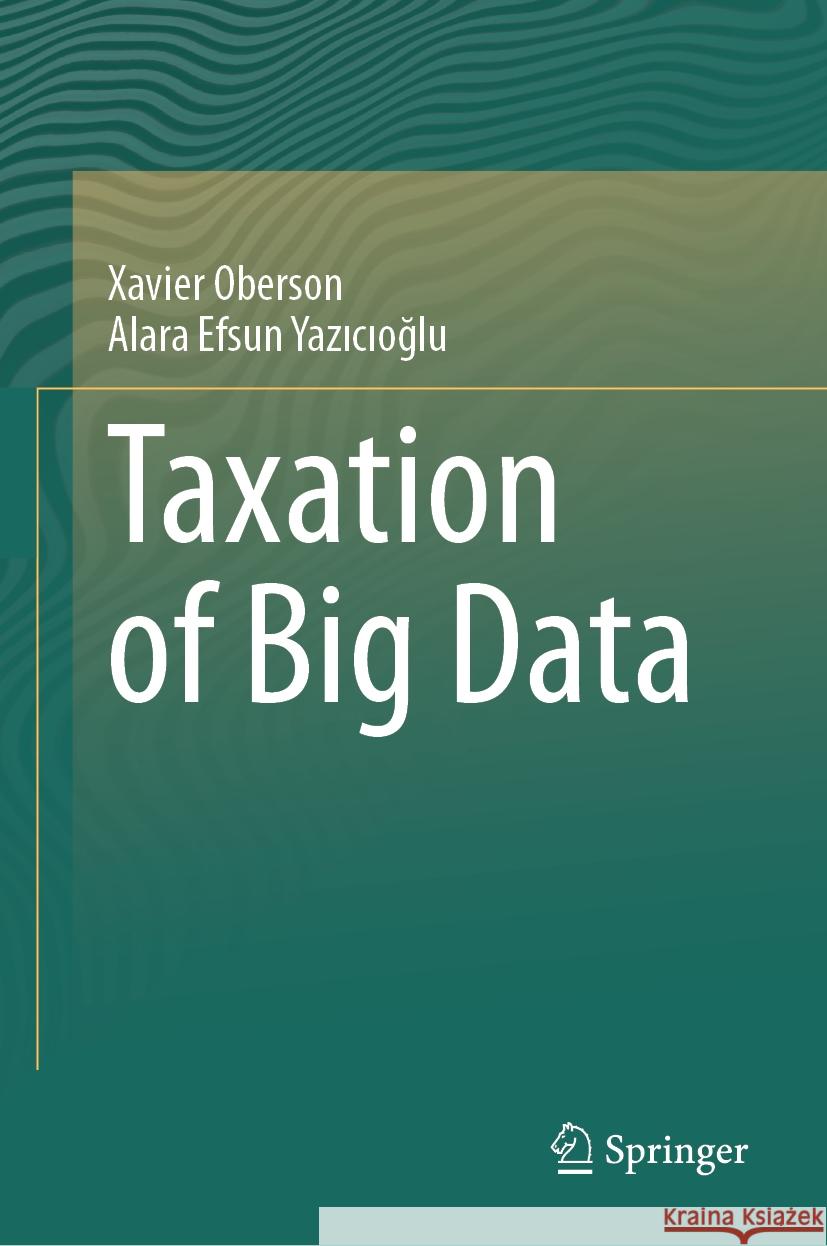Taxation of Big Data » książka



(netto: 575,06 VAT: 5%)
Najniższa cena z 30 dni: 578,30
ok. 16-18 dni roboczych.
Darmowa dostawa!
1 Introduction.- 2 Data and their life cycle.- 3 Anatomy of the “data business”.- 4 Could Pay-per-privacy Options and Data Labour Markets End the Unlimited Collection of Free Data?.- 5 Current international approach to ‘data taxation.- 6 Ending the era of ‘free’ data: data collection tax (Step 1).- 7 Towards a ‘robo-data tax’? (Step 2).- 8 Permanent establishment: the fairest nexus of all? (Step 3).- 9 Distribution of data (Step 4).- 10 VAT on Data Transactions.- 11 Conclusion.
Xavier Oberson is a professor of Swiss and international tax law at the University of Geneva (Switzerland) since 1994. He also practices as an attorney-at-law as a member of the Geneva bar since 1987, and as a partner of Oberson Abels SA in Geneva (Switzerland). He is active in various associations, expert committees and foundations. In this context, he regularly drafts legal opinions, collaborates on various tax reforms and takes part in Parliament sessions. He has published numerous books and articles in the field of tax, notably: «Taxing Robots: Helping the Economy to Adapt to the Use of Artificial Intelligence» Edward Elgar Publishing, 2019; «International Exchange of Information in Tax Matters. Towards Global Transparency», Edward Elgar Publishing, 2015; «Droit fiscal suisse», 5th ed., Helbing & Lichtenhahn Verlag, 2021; «Précis de droit fiscal international», 9th ed., Stämpfli Editions, 2022; and, as a co-author, «Switzerland in international tax law», 4th ed., IBFD Publications, 2011.
Alara Efsun Yazıcıoğlu began her career in the field of tax law in 2009 at the University of Geneva (Switzerland) as a research and teaching assistant working with Prof. Xavier Oberson. She is an assistant professor of Turkish and international tax law at Kadir Has University (Türkiye) since 2018, where she also acts as the head of the financial law section. She is an attorney-at-law, member of Istanbul Bar Association, since 2017. She has numerous publications in the field of tax law, including: «Social Media and Tax Law» Routledge, 2023; «International Taxation Law in Sports Events», Routledge, 2021; «Pink Tax and The Law, Discriminating Against Women Consumers», Routledge, 2018; and, as a co-author, «Droit fiscal suisse et international, Recueil de cas pratiques», 3rd ed., Helbing & Lichtenhahn Verlag, 2022.
This book has the merit of being the first book analysing different aspects of data taxation from a wide perspective encompassing not only tax law but also other significant issues related to data, such as data protection and economic inefficiencies. The main aim is to provide data-specific solutions to data-driven problems. In the midst of a number of critical issues and a great deal of uncertainty currently reigning in the field, the authors attempt to put forward easy-to-implement and efficient proposals on the basis of an interdisciplinary analysis.
The core idea of this book consists of segregating the utilisation of data into four different yet interdependent steps and constructing the tax law analysis on top of these four corner stones. Step one, occurring in the generation and collection phases of the data’s life cycle, comprises ‘the digital barter’ and other collection of data. Step two, taking place during the processing and analytics phases of the data’s life cycle, consists of microwork. Step three, situated in the storage, processing, analytics and use phases of the data’s life cycle, encompasses aggregation and internal use of data. Step four, materialising during the distribution and use phases of the data’s life cycle, covers sale of data, transfer of data and granting the right to use a database.The main issues occurring in each of the four steps are analysed separately, and yet interdependently, with an emphasis on international tax law. The book also comprises a VAT analysis; suggestion of a new type of tax, namely «data collection tax»; and a brief opinion on a potential future «robo-data tax».
The subjects explored in this book are of interest for researchers, lawyers as well as tax administrations. Albeit being an academic publication, the developments made in this contribution are also relevant for the general public. After all, data, the youngest intangible, constitute the raw material of the fourth industrial revolution; and their use and taxation affect each and every citizen!1997-2026 DolnySlask.com Agencja Internetowa
KrainaKsiazek.PL - Księgarnia Internetowa









